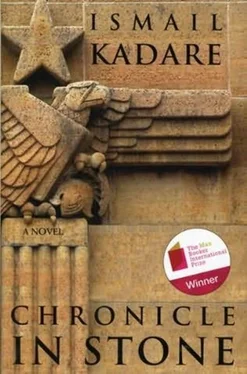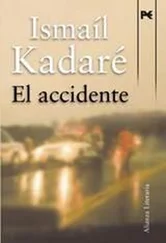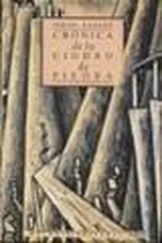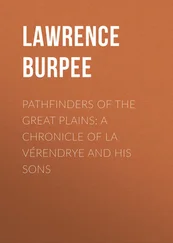Ismaíl Kadaré - Chronicle in Stone
Здесь есть возможность читать онлайн «Ismaíl Kadaré - Chronicle in Stone» весь текст электронной книги совершенно бесплатно (целиком полную версию без сокращений). В некоторых случаях можно слушать аудио, скачать через торрент в формате fb2 и присутствует краткое содержание. Жанр: Современная проза, на английском языке. Описание произведения, (предисловие) а так же отзывы посетителей доступны на портале библиотеки ЛибКат.
- Название:Chronicle in Stone
- Автор:
- Жанр:
- Год:неизвестен
- ISBN:нет данных
- Рейтинг книги:4 / 5. Голосов: 1
-
Избранное:Добавить в избранное
- Отзывы:
-
Ваша оценка:
- 80
- 1
- 2
- 3
- 4
- 5
Chronicle in Stone: краткое содержание, описание и аннотация
Предлагаем к чтению аннотацию, описание, краткое содержание или предисловие (зависит от того, что написал сам автор книги «Chronicle in Stone»). Если вы не нашли необходимую информацию о книге — напишите в комментариях, мы постараемся отыскать её.
Chronicle in Stone — читать онлайн бесплатно полную книгу (весь текст) целиком
Ниже представлен текст книги, разбитый по страницам. Система сохранения места последней прочитанной страницы, позволяет с удобством читать онлайн бесплатно книгу «Chronicle in Stone», без необходимости каждый раз заново искать на чём Вы остановились. Поставьте закладку, и сможете в любой момент перейти на страницу, на которой закончили чтение.
Интервал:
Закладка:
There was no massacre on the first day. Nor on the second. They had put a big sign in the town square saying Vorio Epire , “Northern Epirus”. Commandant Katantzakis lunched and dined with some of the rich Christian families.
A Greek sergeant fired several shots, but no one was hit. He did, however, get the city’s only statue in the thigh. It was a big bronze statue in the town square, erected back in the days of the monarchy. The city had never had statues before that. The only representations of the human form were the scarecrows in the fields on the other side of the river. When plans to put up a statue were announced, many fanatical citizens who had hailed the anti-aircraft gun had been somewhat sceptical. A metal man? Was such a novelty really necessary? Might it not cause trouble? At night, when everyone was sleeping as God had ordained, the statue would be out there standing erect. Day and night, summer and winter, it would stand. People laughed and cried, shouted and died. But not the statue. It would just stand there and not utter a sound. And everyone knew how suspicious silence was.
The sculptor who came from Tirana to inspect the proposed site of the pedestal barely escaped blows. A bitter polemic raged in the city newspaper. At last the majority of the population resigned itself to having the statue. It arrived in a huge lorry with a tarpaulin over the back. It was winter. They set it up at night in the main square. To avoid trouble there was no unveiling ceremony. People stood and stared in wonder at the bronze warrior with his hand on his pistol, who gazed severely down into the square as if asking, “Why didn’t you want me?”
One night someone threw a blanket over the bronze man’s shoulders. From then on, the city’s heart went out to its statue.
Anyway, this was the statue the Greek sergeant shot. People rushed to the square to see the bullet hole. Some of them went starry-eyed and imagined that they themselves had to limp. Others actually were limping, as if they had been hit in the thigh. The square was in turmoil. Suddenly Katantzakis, escorted by several guards, appeared at the edge of the square, walked across it diagonally, and went into the town hall, where the Greek command was headquartered.
An hour later, in the spot reserved for proclamations, a sign was posted, in Greek and Albanian and signed by Katantzakis, ordering the arrest of the sergeant who had shot the statue.
That afternoon Xhexho came over.
“Oh my poor dears, do you know what we’re in for now?” she cried the moment she came through the door. “They say Vasiliqia has come back.”
“Vasiliqia?” exclaimed Grandmother, going pale.
“Vasiliqia?” my mother repeated in horror.
My father, hearing their voices, came in from the other room.
“What’s this, Xhexho? Vasiliqia’s back?”
There was a pause during which all you could hear was Xhexho’s wheezy breathing.
“If only I had died last winter,” lamented Grandmother. “Under the earth I would be spared such things.”
“I should have been so lucky,” Xhexho agreed.
“I thought nothing in this life could surprise me any more,” Grandmother said, “but Vasiliqia coming back? Anything but that.” There was a terrifying resignation in her voice.
Papa cracked his long sinewy fingers.
“They say she’s worse than ever now,” Xhexho went on. “It will be a catastrophe.”
“Woe betide us,” my mother wailed.
“Where is she?” my father asked. “When will we see her?”
“She’s locked up in Pasha Kauri’s house. They’re just waiting for the right day to bring her out.”
There was a knock at the door. It was Bido Sherifi’s wife, along with Kako Pino, Nazo’s daughter-in-law (more beautiful than ever amidst these horror-struck faces), and Mane Voco’s wife, holding Ilir by the hand.
“Vasiliqia?”
“Is it true? She’s back?”
“How dreadful!”
All the old women had facial tics. Their wrinkles leapt about so furiously it seemed they would come loose and fall off. I had the feeling I was already entangled in those wrinkles.
“So it is, Selfixhe,” said Xhexho, folding her arms on her chest.
“You’ve brought us tidings of death, Xhexho.”
“The end of the world.”
I had already heard about Vasiliqia. The name of this woman, who had terrorised our city some twenty years before, was linked in my mind with words like “cholera”, “plague” and “calamity”, and like them, cropped up in most of the curses people levelled at one another. For long years the name Vasiliqia had hung over their heads like an ever-present threat. Now it had stepped forward out of the universe of words and was plummeting down upon us, assuming the body, eyes, hair and mouth of a woman dressed in black.
More than twenty years ago this woman had arrived in our city with the Greek occupation forces. She would wander the streets in the company of a patrol of Greek gendarmes, weapons at the ready. “That man there has the evil eye,” she would say to them, “seize him.” And the gendarmes would grab him. “That boy over there looks suspicious. He’s no Christian. Grab him, cut him to pieces and throw him in the river.”
She moved through the streets, went into coffee houses, sat staring at people in the main square. The Greeks called her the holy maid. The streets and coffee houses emptied out. She was shot at twice, but was not hit. More than a hundred men and boys were executed on her orders. Then one fine day she walked off with a column of soldiers, heading south, back where she came from.
The city had never forgotten her. Once she had left the real world her name, “Vasiliqia”, had entered the abstract realm of words. “May the eye of Vasiliqia cut you down,” old women would curse. Vasiliqia became more and more remote, as distant as the plague (for plague, too, had once been very near), perhaps even as remote as death. Embittered by her long absence, all of a sudden she had now come back.
Evening fell. Pasha Kauri’s windows were draped with blankets. Why hadn’t they brought her out? What were they waiting for?
The city kept vigil with Vasiliqia on its mind.
The next day, around mid-morning, Xhexho came over again.
“The streets are deserted,” she reported. “Gjergj Pula was the only one I saw, going up to the market. Did you hear that he’s changed his name again?”
“To what?” asked Grandmother.
“Yiorgos Poulos.”
“The scoundrel.”
Gjergj Pula lived in a neighbourhood near ours. The first time the Italians came he had changed his name to Giorgio Pulo.
There was a knock at the door. Bido Sherifi’s wife came in, followed by Nazo’s daughter-in-law.
“We saw Xhexho coming in. Is there any news?”
“Better to be dead and buried than to hear the news there is,” said Xhexho. “Have you heard what they’re saying about Bufe Hasani?”
Grandmother nodded in my direction. I pretended not to be listening. Whenever Bufe Hasani’s name came up, Grandmother was careful not to let me hear.
“He has taken up… with a Greek soldier.”
“What a disgrace!”
“His wife is beside herself. ‘I thought it was all over when the Italians left,’ she wept, ‘when that damned Pepe took off, stinking of hair-cream from twenty paces. But now that filthy husband of mine has got his hooks into one of those spiropoules . A Greek, sisters, a Greek!’”
Nazo’s daughter-in-law’s almond eyes sharpened. Bido Sherifi’s wife pinched her cheeks, leaving traces of flour.
“That Bufe Hasani has his mind made up, and he has the cheek to say so. He says he’s going to pick a lover from every occupying army. A German if the Germans come, a Japanese if the Japanese come.”
Читать дальшеИнтервал:
Закладка:
Похожие книги на «Chronicle in Stone»
Представляем Вашему вниманию похожие книги на «Chronicle in Stone» списком для выбора. Мы отобрали схожую по названию и смыслу литературу в надежде предоставить читателям больше вариантов отыскать новые, интересные, ещё непрочитанные произведения.
Обсуждение, отзывы о книге «Chronicle in Stone» и просто собственные мнения читателей. Оставьте ваши комментарии, напишите, что Вы думаете о произведении, его смысле или главных героях. Укажите что конкретно понравилось, а что нет, и почему Вы так считаете.












